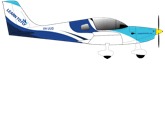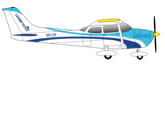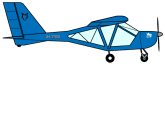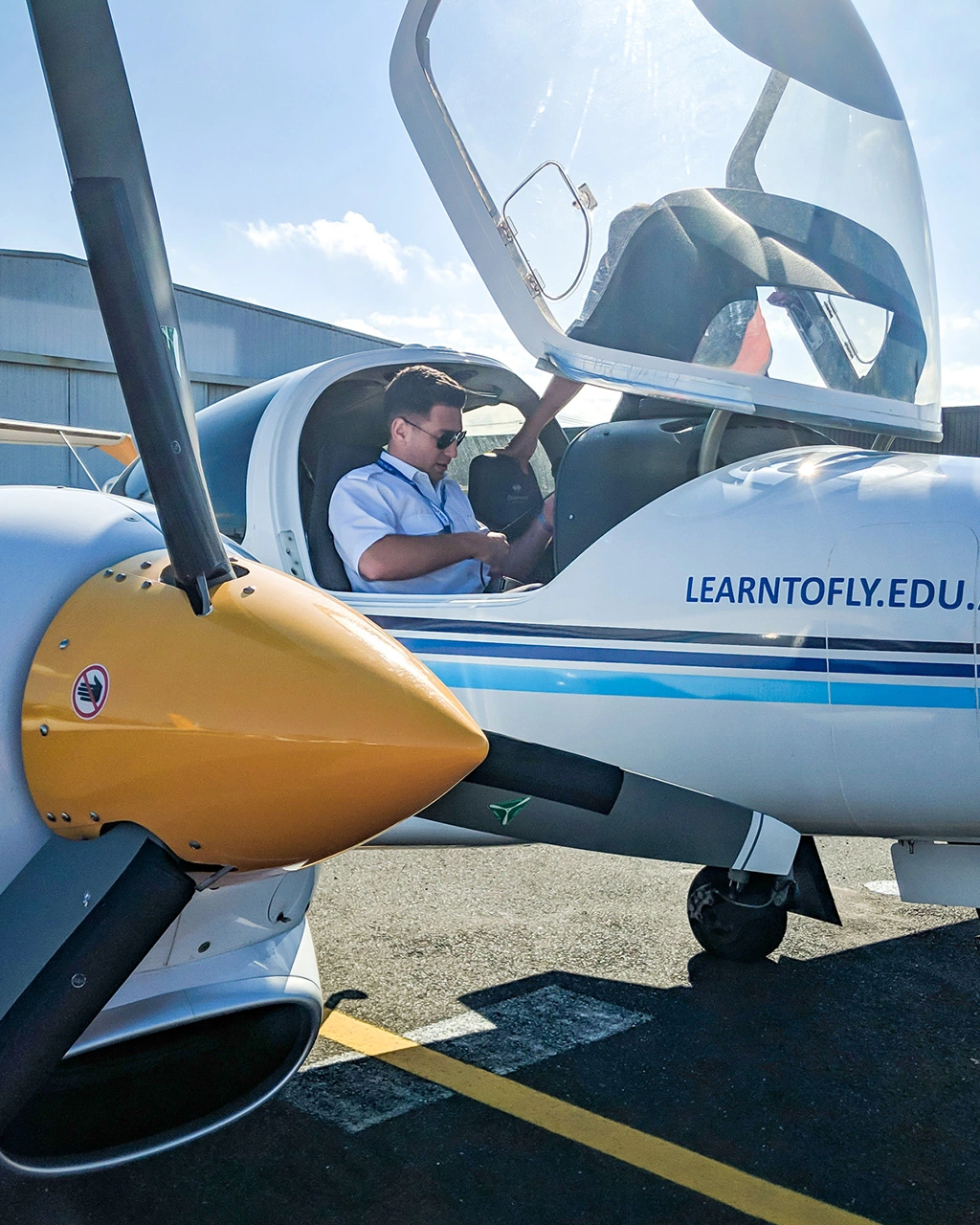
August 02, 2019
The IMSAFE for Pilots Method
Pilots know their pre-flight checklist inside and out to ensure the aircraft is safe and ready to fly. Of equal importance is the IMSAFE for pilots method, which is pre-flight wellbeing cross-check to determine that they are physically and mentally fit to fly aircraft.
Pilots will learn the IMSAFE checklist early in flight training because a multitude of human factors can impair pilot skills and decision making. Decisions that pilots make can bear far greater consequences than your average 9-5 job.
Passenger and pilot safety is paramount, and therefore conducting an IMSAFE check helps reduce the likelihood of errors.
IMSAFE for pilots stands for:
Illness (meaning, are you currently sick or have been recently?)
Medication (meaning are you taking prescription or over the counter medications?)
Stress (meaning are you experiencing psychological pressure or anxiety?)
Alcohol (meaning when did you last consume alcohol, or are you hungover?)
Fatigue (meaning are you exhausted or overtired? When did you last eat?)
Emotion (meaning are you upset about anything?)
It’s obviously a fairly tough time for current pilots, with huge disruptions to domestic and international travel. Major carriers like Qantas, Singapore Airlines and Cathay Pacific have had to stand down thousands of employees. Sadly this has included even experienced airline pilots. Many people may think that starting pilot training now is risky, but we think the future is bright. Read on to find out why!
Illness
A valid medical certificate is required for certain conditions, but it’s important to acknowledge less serious conditions as well. If you had a cold or flu, you would reschedule your medical until you were feeling better, so you should also reschedule your flight.
Please rest if you are sick. Cold, flu and seasonal allergies should not be underestimated. It’s a double-edged sword in how their symptoms in isolation can affect pilot performance, and then combine with any medication you take to relieve them.
Medication
Many prescription and over-the-counter medications can be dangerous for a pilot to take before flying. When medication is necessary, discuss it with an aviation medical examiner before you fly. Depending on the drug, it may mean there is a no-fly wait period post-consumption for pilot safety. It’s also worth investigating any long term effects of taking medication.
Stress
Stress is a regular part of life. However, we can likely agree that pilots have an inherent intensity that comes with the job. It’s above average and prolonged stress that affects us negatively. The kinds of stress to be aware of are:
Physiological: the physical body including fatigue, strenuous exercise, injury, changing time zones, diet, illness and physical ailments.
Environmental: external factors like temperature, noise, crowds, lighting, air quality.
Psychological: triggered by grief, family issues, conflict, financial troubles or a change in work schedule and obligations.
Stress can come from good things happening in our lives too including getting married, expecting a child, role promotion, a pending holiday, or even large purchases.
Develop positive habits and outlets to manage stress ongoing as part of your IMSAFE for pilots practices. Here are some ideas:
| Regular exercise | Yoga | Drink lots of water |
| Meditation | Eat nutritious food | Spend time outside |
| Quality sleep | Less screen time | Limit alcohol |
Having a clear mind is so important. If stress or anxiety is affecting your thought process before or during flights, talk to trusted family and friends or a professional.
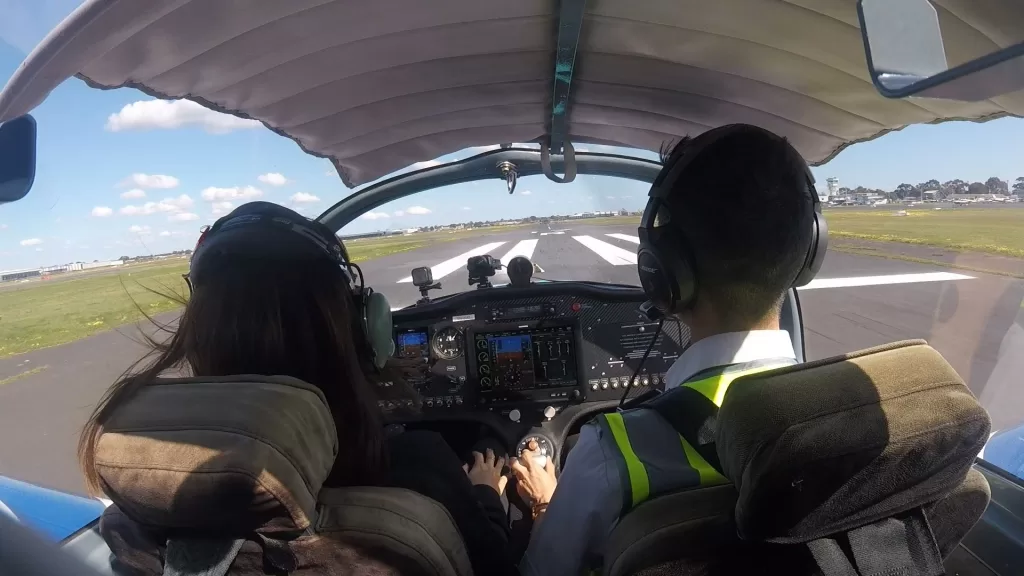
Alcohol
Alcohol’s effects are universally understood, and consuming alcohol within 8 hours of operating an aircraft is prohibited. This can be enforced with random breath testing.
“Eight hours from bottle to throttle” is also a slippery slope. While you might pass a random breath test, hangovers can’t always be cured by a buffet breakfast and Berocca. Nausea, vomiting, extreme fatigue, dehydration, foggy attention and dizziness are not symptoms you want to fly a plane with.
There’s the creeper hangover too. Have you ever woken up fine, but then several hours later want nothing more than a Gatorade, bed and darkroom? Resist the temptation, and avoid alcohol 24 hours before you get behind the instruments.
Fatigue
Fatigue is different from being tired and lifestyle, physical and mental health factors affect fatigue levels in everyone differently. If you know your body and understand what it needs to perform optimally then you can take steps to ensure fatigue doesn’t set in.
Food is fuel, and this means having a proper diet as well as eating regularly. Prolonged hunger can cause drops in blood sugar, which affects your mood, energy and concentration. Schedule in your mealtimes and keep nutritious snacks, confectionery, water or electrolyte drinks on hand.
Emotion
Pilots are encouraged to keep calm and carry on in all situations, but they are still human. Take the time to consider your own personal and professional baggage before you enter the cabin, and ask yourself:
– Is anything bothering or upsetting you?
– Are you angry or annoyed?
– Are you sad, anxious or depressed?
Negative emotions are part of the human experience. It might be something that happened today or an accumulation of things. No one is asking you toughen up and get over it. Taking an emotional inventory can help you compartmentalise it pre-flight and focus on the job. Be sure to seek out a trusted friend or family member, or professional help if you need support.
To find out more about our flight training courses please email hello@learntofly.com.sg. You can also go to https://drift.me/learntofly/meeting to book a meeting and school tour.


